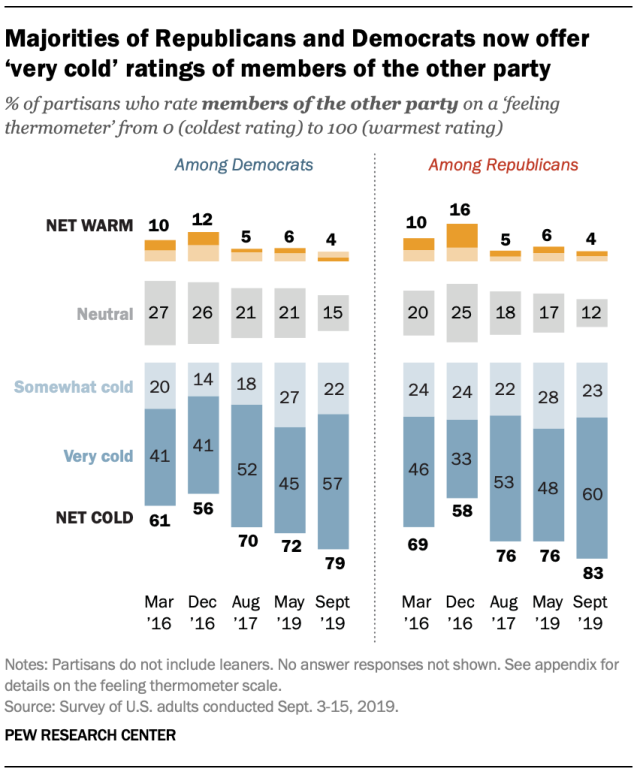Recently, I caught a glimpse of a back-and-forth twitter fight, the kind that seems so common these days. Someone had posted a picture of a prominent congresswoman dining out with her boyfriend. The picture had the man’s feet circled, so that the commenter could make fun of them. The congresswoman shot back, questioning the other guy’s level of, well, sexual frustration.
I didn’t read anymore, but I’m pretty sure I know how the story goes. Sides are taken, motives questioned, more cutting comments are made. In fact, the only reason I found the post was because someone else had linked to it in a newsletter I read. Turns out, even when we’re not on twitter, it sucks us into its world. We have more ways to communicate these days, but it often seems as if the tempo of our cultural conversation is set by the loudest and most aggressive among us.
But that night I had a dream. I was on an elevator with this very same congresswoman. Apparently, in my dream, her boyfriend lives near where I live — so she was visiting my community. I could tell she wasn’t feeling well, but even so, I asked her a question, and she responded. A conversation developed. She told me she had visited the large church in my community. We talked about the work I do connecting mentors with vulnerable kids, and we shared a common concern for that need.
I told you it was a dream, right? But why does it have to be? Who decided that twitter gets to determine the level of our discourse? Why is that around 80% of Republicans & Democrats consider themselves “cold” to those who belong to the other party? Could it be because we have allowed social media snark to shape the conversation?

In the work I do, we will often pair adults who are grandparents with teenage kids. Often these 2 have very little in common — which means they often will have very different opinions on how life works. But we work with our mentors to connect with these kids, not on the level of agreement, but on the level of empathy. Turns out, you don’t have to agree with someone, or have much in common, to listen. To care. To be curious about their life and how they got to where they are.
At the risk of psycho-analyzing myself, perhaps the reason the congresswoman in my dream was sick is so that I could be reminded: I know very little about her — including her struggles, her challenges, where she came from, and what no doubt she has had to face on her journey to Congress. She is more than just her policy positions and her twitter thread.
Which is true for all of us. Whether we are a troubled teen, a “woke” college student, a behind-the-scenes senior adult. Whether we are covid-concerned or covid-casual. When we see each other as human, as one made in the image of God, it changes how we approach even our most hardcore opponent. In fact, it gives us reason to approach them at all.
Several years ago, at a convention, I heard the president of Ozark Christian College, Matt Proctor, talk about his daughter’s friend. She was in a tough place and needed a place to stay, so Matt & his family opened their home to her. It wasn’t easy. She sometimes dropped her cigarette butts on the driveway, and sometimes dropped some colorful words into the conversation.
One time, she had a job interview several hours away, and needed a new tire before she took the trip. Matt took her car to Walmart and realized he was driving a car with very specific bumper stickers that reflected very specific positions on very specific cultural issues. And he wondered what people would think. After all, he lives in a small town, and he is president of a Bible college.
But, of course, he realized: his daughter’s friend was more than her bumper stickers. She was much more than her political positions. And his family’s friendship with this struggling young woman was going to take precedence over what people might think about them, say to them, or post about them on social media.
I can’t help wonder: What would the Church be like if we didn’t follow the political winds of our day? What does it look like if, instead of being seen as cold toward those we disagree with, others are drawn to the warmth of our love? What happens when we aren’t known for our put-downs, clever comments, or our political tribe — but instead, for our concern for those different than us?
Well, it might look like Bob Vander Plaats & Donna Red Wing. Or Daryl Davis & members of the KKK. Or Corrie Ten Boom & one of her German prison guards.
Or maybe it starts more simply than that. Like crossing the generations, as Dan Peterson & Norah Wood have done. Or crossing the political aisle, like Cornell West & Robert George have done.
Or maybe it just starts by crossing the street, or the hall at work, or the aisle at church. As I look at my list of friends, I’m reminded that I agree about so much with so many of them. How would I be enriched and challenged in 2022 if, instead of living in an echo chamber, I pursued a friendship with someone I disagree with? What would happen if, instead of lobbing grenades on social media, I reached out in love to someone very different from me? What might it do for me? What might it do for the world?